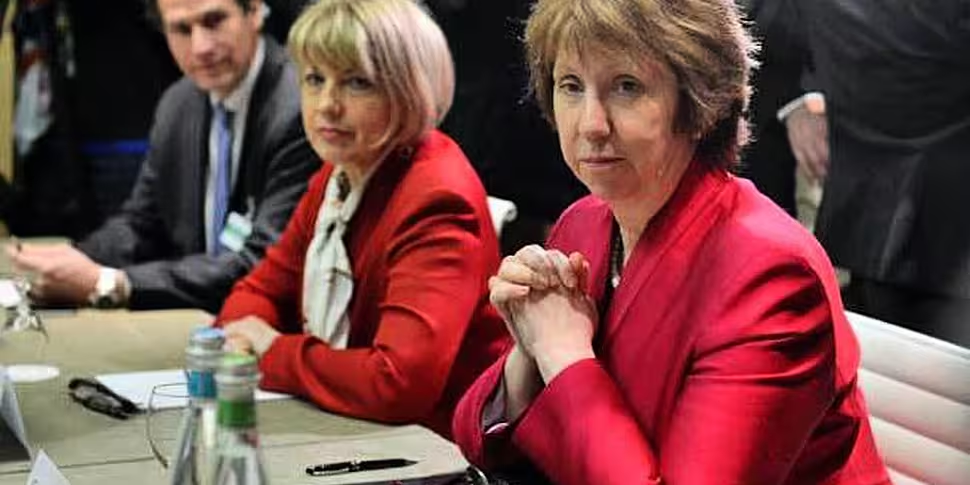European governments have agreed new sanctions against Russia, targeting its oil industry, defence sector and dual-use goods.
Moscow's sensitive technologies and dual-use goods are also being targeted as part of the fresh action which will be reviewed after three months, a diplomat said.
The capitals of all 28 nations will now look at and rubber-stamp what has been agreed.
The move is seen as an extension of existing US and EU sanctions and will focus on 11 individuals and other "entities" - the so-called 'cronies' of Russian President Vladimir Putin.
It also comes after the other leaders of the Group of Seven (G7) warned in a statement earlier this week that they were prepared to move to broader sanctions on Russia, including "sectoral measures".
As the crisis in Ukraine continues, Russia has been accused of attempting to exert pressure elsewhere in its former sphere of influence.
Russian border guards are constructing a vast "security fence" across disputed territory in the former Soviet state of Georgia, establishing a de facto border around the breakaway region of South Ossetia.
Georgia says the move is a creeping annexation of its territory and a violation of its sovereignty. Russia and Georgia fought a five-day war over the region in 2008.
Russia is one of the few countries to recognise South Ossetia as an independent state and supports it both economically and militarily - most other countries and the government in Tbilisi consider it to be part of Georgia.
Construction of the fence has accelerated over the last 12 months, as Georgia moved towards signing a free trade deal with the European Union.
The fence divides villages, and in some cases houses, separating families from their livelihoods and neighbours.
The EU has a monitoring mission here, deployed as part of the ceasefire agreement in 2008. They patrol and record the ongoing construction of the fence, and the impact it is having on the lives of people here, but their powers are strictly limited.
The monitors are unarmed and have no access to the breakaway region so cannot travel to the far side of the fence.
Both the US and NATO have condemned the construction of the fence, but Russia says South Ossetia has the "unassailable right" to take such measures to "ensure the security of its borders and its citizens."
South Ossetia delegated control of its border to Russia in 2009, citing the absence of its own border force.
Georgia says all this has little to do with the sovereignty or otherwise of South Ossetia, and everything to do with Russia projecting its power, and maintaining a military presence on its border.
Originally published 16:32









